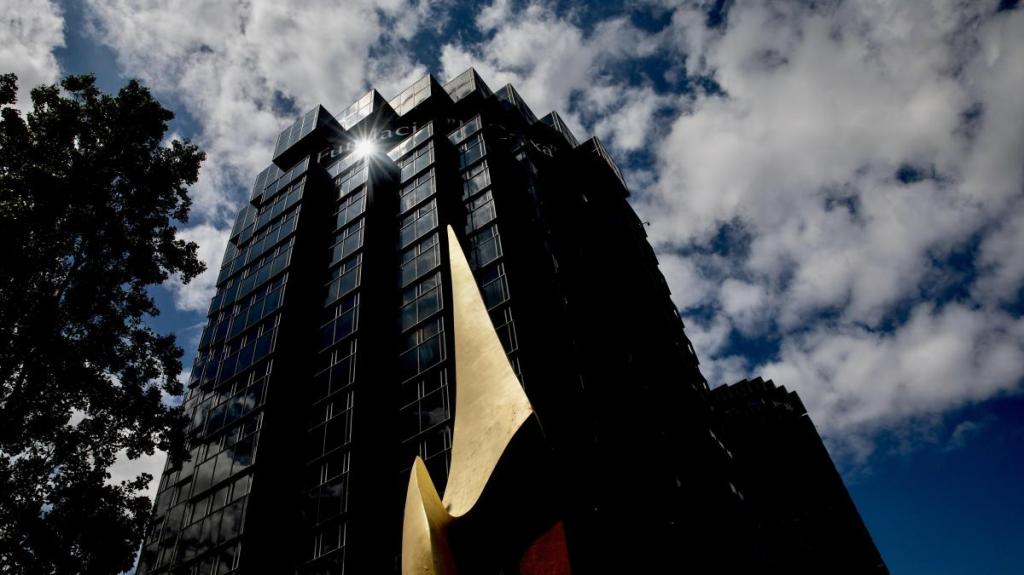La Caixa Returns to Barcelona Reviving Catalonia's Economy
La Caixa's return to Barcelona signals renewed confidence in Catalonia's economy, highlighting a promising future for business and social investment.

Key Points
- La Caixa
's return to
Barcelonasymbolizes a shift towards stability and renewed confidence in
Catalonia's economic landscape.
- The relocation supports a larger trend of businesses reconsidering their positions in light of improved governance and market conditions.
- With a commitment to social responsibility, La Caixa plans to allocate a significant budget towards community transformation and investment initiatives.
The recent decision by La Caixa to return its social headquarters to Barcelona marks an important milestone not only for the financial institution but also for the broader Catalonian economy. As La Caixa re-establishes its presence in its historical home, it symbolizes a shift toward stability and renewed confidence in the region's economic landscape. This move follows a tumultuous period that began with the political tensions surrounding the 2017 independence referendum, which saw numerous companies relocating outside of Catalonia. Now, after more than seven years, La Caixa is ready to plant its roots back in Barcelona.

Understanding the Impacts of the Relocation
In October 2017, La Caixa, along with several other major firms, moved its headquarters to
in response to the political unrest affecting Catalonia. This move was widely viewed as a protective measure amidst uncertainties surrounding the region's future. However, the landscape has changed significantly under the new leadership of
, who has fostered a stable environment conducive to corporate growth. The decision to return indicates that La Caixa's leadership is confident in the region's political and economic viability.
The decision to relocate back was made unanimously during an extraordinary session of the Foundation's board, underscoring the collective commitment to Catalonia's resurgence. Interestingly, the announcement follows closely on the heels of Bank Sabadell's similar decision to return, setting a precedent that may inspire other firms to do the same.
A Deep Dive into La Caixa’s Strategic Importance
La Caixa stands as Spain's largest financial group, with a valuation exceeding 30 billion euros. It holds significant investments across diverse industries through its holding company, Criteria. With influential stakes in major corporations like
,
, and CaixaBank, La Caixa plays a pivotal role in Spain's economic framework. This level of investment not only solidifies its status but also underscores the importance of a stable governance structure in Catalonia.
Notably, during a period of nearly a year post-announcement, Criteria’s leadership, under CEO Ángel Simón, engaged in substantial acquisitions, demonstrating their proactive approach to reinforcing their portfolio. From acquiring additional stakes in prominent companies to investing heavily in transformative sectors, La Caixa continues to position itself as a key player in Spain's economic landscape.
Rebuilding Confidence in Catalonia
The relocation is symbolic not only for La Caixa but also represents a larger shift in the sentiment towards Catalonia. For years, the instabilities caused by political tensions led to a 'business exodus' where over 4,000 companies relocated outside the region. Now, with La Caixa's return, there is hope that stability and growth can finally take precedence.
The significance of this move cannot be underestimated. It sends a powerful message to other businesses that Catalonia is once again a viable place for investment and economic activity. Furthermore, it demonstrates a collective effort from both the corporate and political sectors to ensure that the region remains resilient and thriving.
Beyond the Corporate Rebirth
It's crucial to note that the return of La Caixa does not merely pertain to corporate logistics; it reflects a renewed commitment to social responsibilities. With a budget allocation of 655 million euros for 2024—an increase of 9%—La Caixa continues to champion various programs that address social transformation. This focus on social investment can positively impact local communities and foster a sense of unity and progress within Catalonia.
As we move forward, La Caixa's decision may inspire other entities to reconsider their own positions, potentially sparking a trend that could catalyze further economic revitalization in Catalonia. The textiles of history are woven with the threads of corporate responsibility, community engagement, and political stability, creating a tapestry of resilience and hope.
The return of La Caixa to Barcelona marks not just the closing of a chapter but the beginning of a new narrative for Catalonia, one that embraces growth, stability, and social responsibility. With committed leadership and a proactive approach, the future looks promising for La Caixa and, by extension, for the economy of Catalonia.


